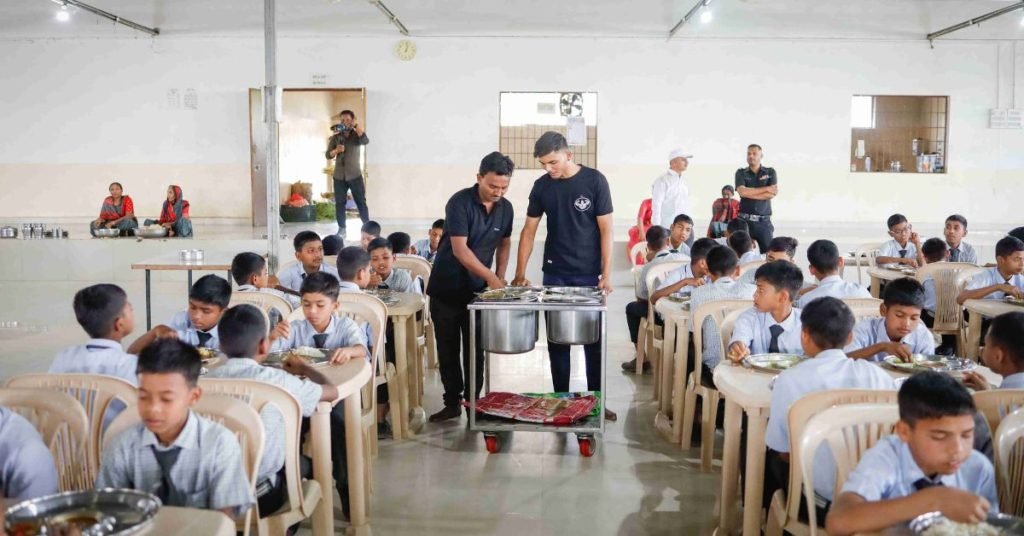When it comes to the well-being of students, ensuring food safety in schools is of paramount importance. Schools play a critical role in shaping young minds and nurturing a healthy environment. One key aspect of this responsibility is providing safe and nutritious meals to students.
In this blog, we will delve into the significance of food safety in schools, the importance of adhering to food safety regulations, and the best practices that schools should adopt to maintain a safe and healthy dining experience for their students.
The Importance of Food Safety in Schools
Food safety in schools is crucial for several reasons. First and foremost, children are more vulnerable to food-borne illnesses due to their developing immune systems. A single case of food poisoning can not only disrupt a child’s health but also impact their attendance and academic performance. Ensuring that the food served in schools is safe can help prevent outbreaks of illnesses and safeguard the well-being of the entire school community.
Additionally, effective food safety practices instil virtues in students from a young age. They are more likely to carry these behaviours into adulthood when they learn about cleanliness, food handling, and safe practices in school, which will ultimately lead to a healthier society.
Food Safety Regulations for Schools
Health authorities have set a number of rules and standards to maintain food safety in educational facilities. Various areas of food safety, including food storage, preparation, handling, and serving, are the focus of these rules. To protect the security of its students and employees, schools are required to adhere to certain requirements.
One essential aspect of food safety regulations is regular inspections by health authorities. These inspections not only help schools identify areas of improvement but also serve as a means to maintain accountability. Ensuring that food safety standards are met should be a collaborative effort between school management, cafeteria staff, and relevant health officials.
Best Practices for Food Safety in Schools
Proper Training: It is essential to provide comprehensive training to cafeteria staff on food safety protocols, hygiene practices, and the correct handling of ingredients. Regular refresher courses can help reinforce this knowledge.
Fresh and Safe Ingredients: Schools should source ingredients from reputable suppliers who adhere to safety standards. Regularly inspecting incoming ingredients can help identify any potential issues early on.
Proper Food Storage: Ensuring that food is stored at the appropriate temperature and in sanitary conditions is crucial. Refrigerators and freezers should be monitored regularly to maintain the quality and safety of perishable items.
Hygiene and Handwashing: Promoting good hygiene practices among students and staff is essential. This includes regular handwashing, wearing gloves while handling food, and using utensils to avoid cross-contamination.
Allergen Awareness: Schools must be vigilant about food allergies among their students. Proper labelling of allergens in food items and educating staff about allergy management is critical to prevent severe allergic reactions.
Food Temperature Control: Properly cooked food helps kill harmful bacteria. Regularly checking food temperatures during cooking and reheating can ensure that food is safe to eat.
In Brief
Food safety in schools should never be underestimated. By prioritising the well-being of their students and staff, educational institutions can create a healthy and conducive environment for learning. Adhering to food safety regulations and implementing best practices will not only prevent food-borne illnesses but also instil good habits that will benefit students throughout their lives. By recognising the importance of food safety in schools, we take a significant step towards nurturing a healthier generation.
One exemplary institution that places a strong emphasis on food safety is the Dr Mukundrao K. Pawar Public School. Renowned for its commitment to providing a safe and nurturing environment for its students, this school has implemented stringent food safety regulations and best practices in its cafeteria. From sourcing fresh and safe ingredients to regular staff training on hygiene and food handling, Dr Mukundrao K. Pawar Public School sets a stellar example for others to follow. By prioritising food safety, the school not only ensures the health and well-being of its students but also fosters a culture of responsibility and care.
To learn more about the significance of food safety in schools and how it impacts the overall development of students, subscribe to our newsletter for informative updates and helpful tips. Together, let’s create a safer and healthier future for the younger generation. Join us in promoting food safety in schools today!





